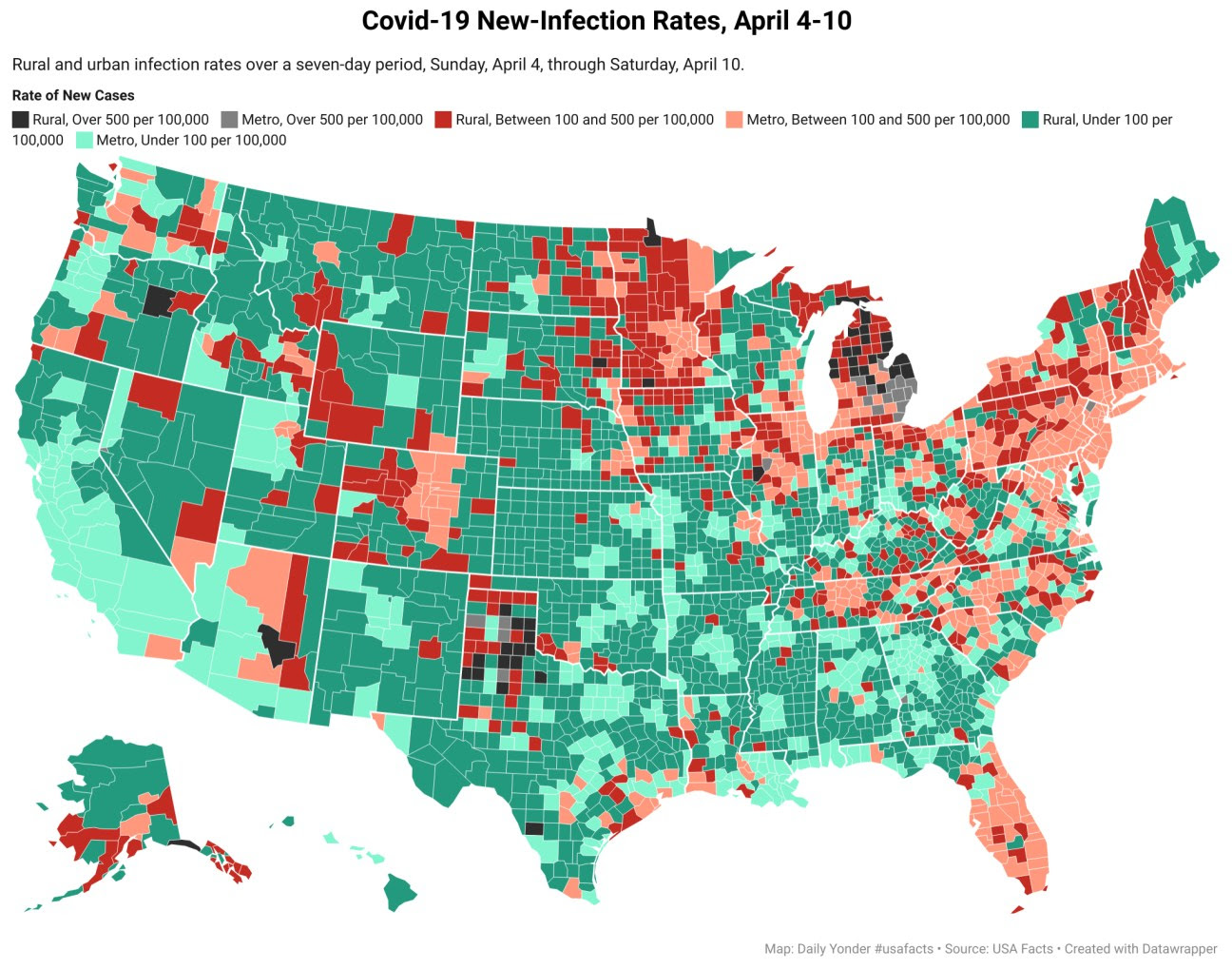- Telehealth Study Recruiting Veterans Now
- USDA Delivers Immediate Relief to Farmers, Ranchers and Rural Communities Impacted by Recent Disasters
- Submit Nominations for Partnership for Quality Measurement (PQM) Committees
- Unleashing Prosperity Through Deregulation of the Medicare Program (Executive Order 14192) - Request for Information
- Dr. Mehmet Oz Shares Vision for CMS
- CMS Refocuses on its Core Mission and Preserving the State-Federal Medicaid Partnership
- Social Factors Help Explain Worse Cardiovascular Health among Adults in Rural Vs. Urban Communities
- Reducing Barriers to Participation in Population-Based Total Cost of Care (PB-TCOC) Models and Supporting Primary and Specialty Care Transformation: Request for Input
- Secretary Kennedy Renews Public Health Emergency Declaration to Address National Opioid Crisis
- Secretary Kennedy Renews Public Health Emergency Declaration to Address National Opioid Crisis
- 2025 Marketplace Integrity and Affordability Proposed Rule
- Rural America Faces Growing Shortage of Eye Surgeons
- NRHA Continues Partnership to Advance Rural Oral Health
- Comments Requested on Mobile Crisis Team Services: An Implementation Toolkit Draft
- Q&A: What Are the Challenges and Opportunities of Small-Town Philanthropy?
Covid Racial Disparities Loom Large in Rural Counties

By Aallyah Wright, Stateline
Rural counties in states that failed to expand Medicaid see disparities in access to Covid vaccines along the racial lines grow even bigger.
Read more
Financial Barriers Stand in the Way of Research at Rural Hospitals
New Covid Cases Increase 10% in Rural Counties

By Tim Murphy and Tim Marema
Michigan and northwest Texas are the hottest spots in the spread of Covid-19 in rural areas.
Read more

FDA Fact Sheets Address Variants for Monoclonal Antibody Products
The U.S. Food and Drug Administration (FDA) recently released revised fact sheets for health care providers that include additional information on susceptibility of SARS-CoV-2 variants to each monoclonal antibody therapy available through an Emergency Use Authorization for COVID-19 treatment. The fact sheets contain details regarding specific variants and potential resistance. Download revised fact sheets for: Bamlanivimab; Bamlanivimab and Etesevimab and REGEN-COV™ (Casirivimab with Imdevimab).
“It’s Ok to Not be Ok,” Managing Mental Health for Therapists
During the last year, many therapists in Pennsylvania have shared similar experiences when working with patients in a mental health setting. Requests for mental health appointments have drastically increased across the state, to the point where there is much more demand than supply. This article does a wonderful job of connecting readers to the experiences of different therapists and sharing how the helping profession is coping and working through the pandemic.
FCC $250 Million Telehealth Program Application Window
Last week, the FCC announced details about when and how it will award the $250 million in new funding for the COVID-19 telehealth program. As expected, FQHCs -– particularly those in rural areas, and those who applied but did not receive funding from this program last year -– will receive significantly priority points, including:
- 15 points for applicants who applied but were not funded in round one last year
- 10 points for being an FQHC
- 10 points for serving a HPSA with a score of 13 or higher
- 5 points for serving a rural area
There will be only a one-week window to submit applications, and it will likely be in late April. Health centers that applied previously but were not funded will need to reapply. Also, applicants who did receive funding in round one are permitted to apply for additional funding in this round.
Study Finds a Third of COVID-19 Survivors Suffer Neurological or Mental Disorders
A new study published this week found that a third of patients diagnosed with the coronavirus experienced a psychiatric or neurological illness as of six months later. Earlier studies found that COVID-19 can cause long-term brain damage and may increase the risk of Alzheimer’s. As Pennsylvania and the nation approaches April 19 when vaccination will be open to all adults, analysis by Johns Hopkins University of the latest available seven days of data finds that nearly half of new coronavirus infections nationwide are in just five states — New York, Michigan, Florida, Pennsylvania, and New Jersey. The five states together reported 44 percent of the nation’s new COVID-19 infections, or nearly 197,500 new cases. We can change this with vaccination: as of this week, 169 million doses have been given worldwide and 6.8 million in Pennsylvania; 63 million people worldwide and 2.4 million in PA are fully vaccinated against COVID-19.
More Than 20% of Women with Prenatal Medicaid Coverage Became Uninsured After Giving Birth
Health Affairs released a report on April 6, 2021, which found that 21.9 percent of new mothers with Medicaid-covered prenatal care became uninsured two to six months postpartum. The report, which analyzed Medicaid-covered prenatal care from 2015 to 2018 in 43 states also found that 26.8 percent of new mothers with prenatal Medicaid coverage were uninsured before pregnancy. Data is from the Centers for Disease Control and Prevention’s Pregnancy Risk Assessment Monitoring System.
Federal Poverty Income Guidelines for 2021
The Department of Human Services (DHS) announced the implementation in Pennsylvania of the 2021 Federal Poverty Income Guidelines (FPIG) which were issued by the federal Department of Health and Human Services and published at 86 FR 7732 on Feb. 1, 2021.
COVID-19 Special Enrollment Period Dental Coverage
Pennie, Pennsylvania’s Health Insurance Marketplace, offers dental coverage. Current Pennie customers can add dental insurance to their plans. New Pennie customers can purchase health and dental insurance as well as only dental insurance. Questions, contact Ken Hetzel, Pennie Director of Policy or Scott Yeager, Pennie Outreach Manager.
